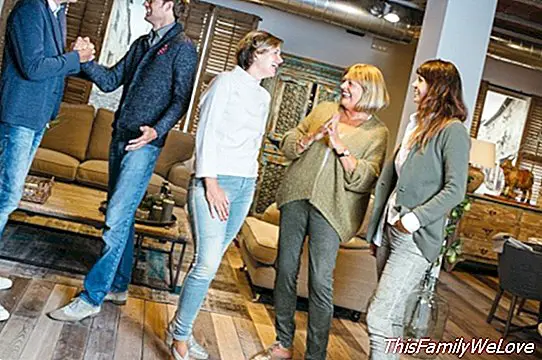Friends and family: what has changed in society?

The important social changes that we have experienced in the last decades have especially affected the experience of friendship in youth and adulthood. But what has changed in the last decades so that friendship is going through such low hours?
Little time to be friends with our friends
The lack of time has broken decisively. The complication of the agendas leaves little room for friendships. The rhythms of work impose routines from Monday to Friday that make it almost impossible to fit leisure moments. It also happens often to adolescents and young people, who distribute their hours between classes, extracurricular activities and sports, some extra class, the work of the subjects and a small daily contact with the family. When the time of friendships comes, they focus on the contact through social networks that allows little depth because it develops in a group environment excessively mediated by new technologies.
During the weekend, the young people see themselves in their nocturnal outings, usually in quite numerous groups and in noisy spaces in which the conversation is little favored. Added to the consumption of alcohol, those moments are not those that encourage sincere friendship. In the day, they will continue to be linked through social networks, but they will forge very superfluous relationships, with little depth.
As for the adults, they prefer to dedicate the weekend to the family, a very commendable attitude, to which they have not been able to pay much attention during the week. It is a substantial change with previous generations in which marriages sought to have more social life during the holidays and leave the children in charge of other people.
The indivualismo is making a dent in the friendships
There is also a substantial change in the way of understanding trust. Postmodern individualism has led society to practice a false modesty and close to others in those aspects that refer to feelings while, at the same time, air intimacies in which friendship would never enter and reveals private life to through social networks and other communication channels.
Finally, a certain lack of generosity, possibly derived from this individualism and the feeling of self-sufficiency that society tries to impose on us, is also taking its toll on friendships. The postmodern man believes he is capable of facing all challenges, hence he has abandoned the idea of family as sustenance, that of faith and also that of friendship.
But if we become aware of all these limitations, we discover how easily friendships can recover and the beneficial effect they exert on us and our environment, as long as we are happier and reflect that happiness on others.
When friendship is a problem
- Toxic friendships during youth. They occur when the utilitarian concept of friendship extends beyond adolescence. Relationships of extreme dependence are often generated, sometimes with aspects of psychological abuse. Some young people are immersed in situations they do not consider adequate, but of those who do not know how to leave for fear of breaking with what is in their environment the mainstream.
The problem is that parents find it difficult to break with this reality. Before, when appropriate, changes in school or home were considered. Today, the Internet prevents putting land in the middle. Here only sincere communication with the children works to make them see the risk of that relationship.
- I do not know your friends. One of the most frequent complaints from parents today is that they do not know anything about their children's friends, almost virtual friends with whom they have no direct contact. Before the irruption of new technologies, parents knew personally the friends of the children because the relationship was physical, face-to-face.
To solve this problem we can not violate the privacy of our children and enter their virtual world, but we must favor the recovery of real contact with children. But that will mean for us the extra effort to exercise taxi drivers in our spare time and, above all, to open the doors to our house, the noise and disorder that generates having a large group in any room of the house. It is not about parents being on top of their children, but about offering a natural, healthy and welcoming space that allows them to monitor with whom their children move.
- I can not stand friends of my partner. They say that we get married with the husband or the wife and with all their family, but nobody notices that we also marry the opposite friends, whether we like them or not. If we like them, the life of friendship as a couple will flow without difficulty. If we do not like them, it's worth stopping to think about the reasons, if they are real or apparent, and to what extent we can accept some friendships of the opposite that do not satisfy us. In any case, it is not bad for couples to reserve a space of their own friendship as long as it does not affect life in common.The ideal will be that the couple will form their friendships from the ones that each one brought and with the sum of new friends they will find.
María Solano
Advice: Alfredo Alonso-Allende, Writer




